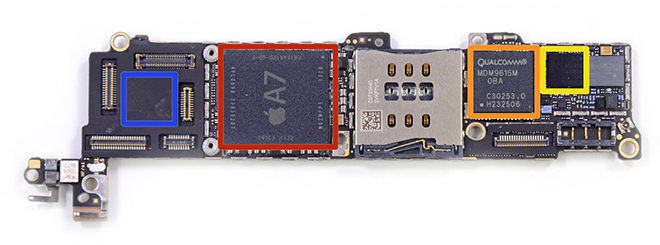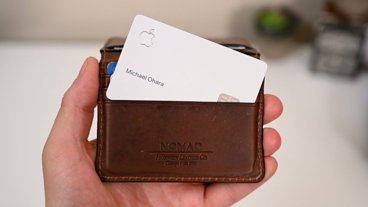Custom iPhone baseband chips seen as too 'herculean' a task for Apple to tackle in-house
With recent rumors and hires suggesting Apple may be planning to build its own custom baseband chips for future iPhones, moving away from off-the-shelf silicon from companies like Qualcomm, one analyst thinks it's a highly unlikely route for Apple to take given the time it would have to invest.
Analyst Brian Modoff with Deutsche Bank issued a note to investors on Monday in which he said the issue in developing a multimode baseband from scratch is not dollars, but rather the the time necessary. He estimates it would take at least five years for top-tier talent and about 1,000 total engineers to develop a custom baseband, and he doesn't see Apple taking on that "herculean task."
Brian Modoff with Deutsche Bank believes Apple may instead be looking to better integrate existing baseband chipsets with its own custom A-series chips.
"Instead of an organic baseband development, we believe Apple is rather trying to realize better integration with existing baseband chipsets and their apps processor, or possibly developing their own internal Wi-Fi chipset," Modoff said.
The comments are similar to ones made last week by Rod Hall of JP Morgan, who cited the "notoriously difficult" nature of developing baseband processors. Hall said he didn't believe Apple would be able to utilize custom iPhone baseband chips until 2015 at the earliest — Â a timeframe much sooner than Modoff believes is possible.
AppleInsider discovered earlier this month that Apple has hired away senior radio frequency engineers from Broadcom and Qualcomm. The news came after a rumor claimed Apple was planning to move its baseband processor design in-house.
In addition to hiring at least 30 mid- and senior-level baseband software and hardware engineers from existing players like Broadcom and Qualcomm over the last three years, Apple is also advertising more than 50 additional openings related to RF chip design. Still, those numbers are well short of the 1,000-plus engineers that Modoff believes would be necessary to accelerate baseband chip development.
The baseband chip acts as the "brain" of a handset's wireless modem. Working in concert with a transceiver, which controls the sending and receiving of wireless signals through the antenna, the baseband processor is what allows a device to communicate over cellular networks.
Over the last few years, Apple has been selectively bringing certain aspects of product development in-house, making the company less reliant on off-the-shelf parts that competitors can also utilize. Developing its own chips, such as the A-series processors found in the iPhone and iPad, also allows Apple the ability to better keep secrets within the company, without having to share information with third parties.
 AppleInsider Staff
AppleInsider Staff











 Chip Loder
Chip Loder
 Andrew Orr
Andrew Orr
 Marko Zivkovic
Marko Zivkovic
 David Schloss
David Schloss

 Malcolm Owen
Malcolm Owen

 William Gallagher
William Gallagher







